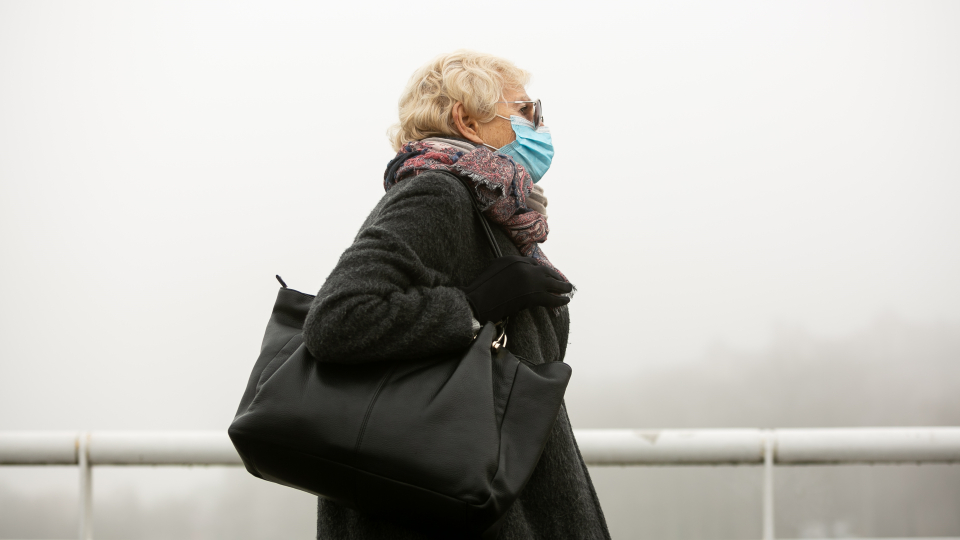The latest survey, conducted at the beginning of November, shows that 22% of respondents assess the possibility of getting seriously ill with COVID-19 as high, 37% average and 29% as low.
Compared to a study conducted in the spring of this year, the number of people who assess their chances of getting ill as high has increased by 6%.
The number of respondents who thought the possibility of getting ill was low has fallen - also by 6%. In both autumn and spring, 12% of respondents found it difficult to assess their chances of getting ill.
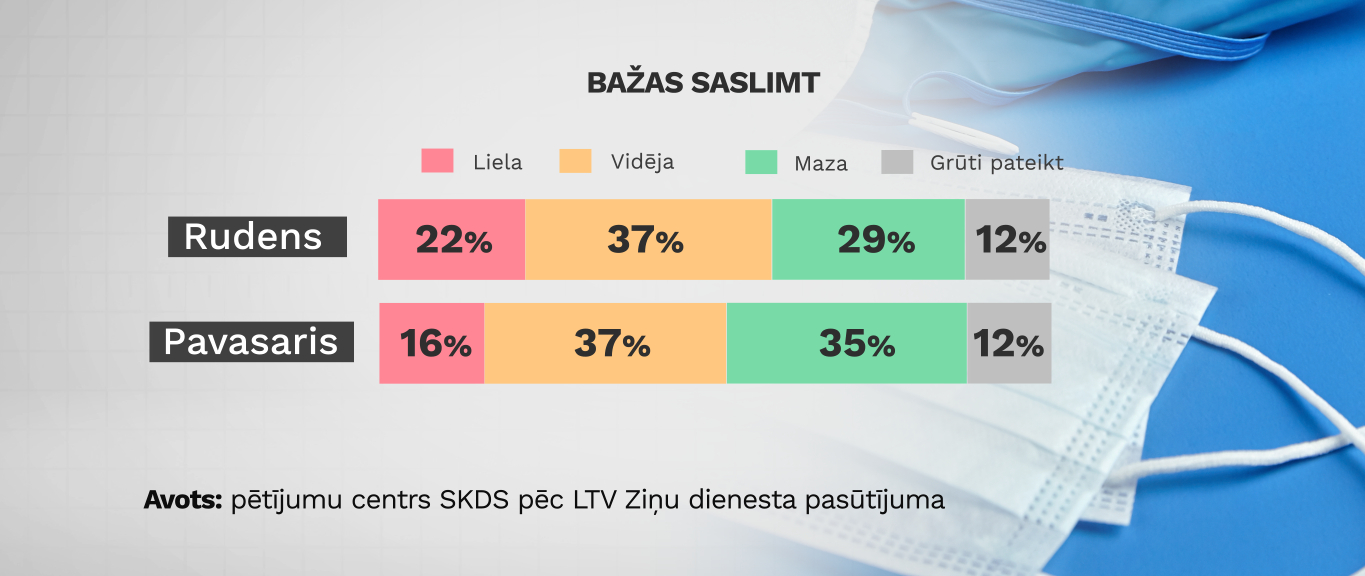
The survey also shows that the respondents consider public events taking place in indoor areas, public transport and handshakes to be the most unsafe.
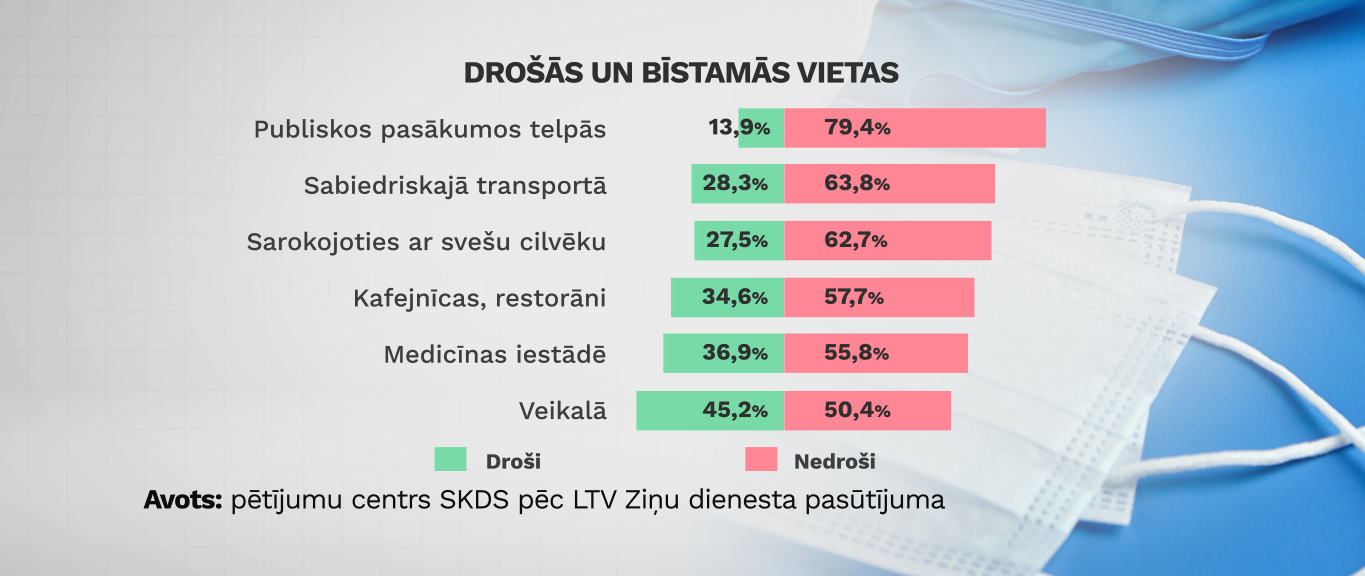
More than 90% of respondents think that, just walking down the street, the chance to catch the virus is small. Another safe place was considered being together with family. A relatively safe place is also considered to be the workplace with colleagues.
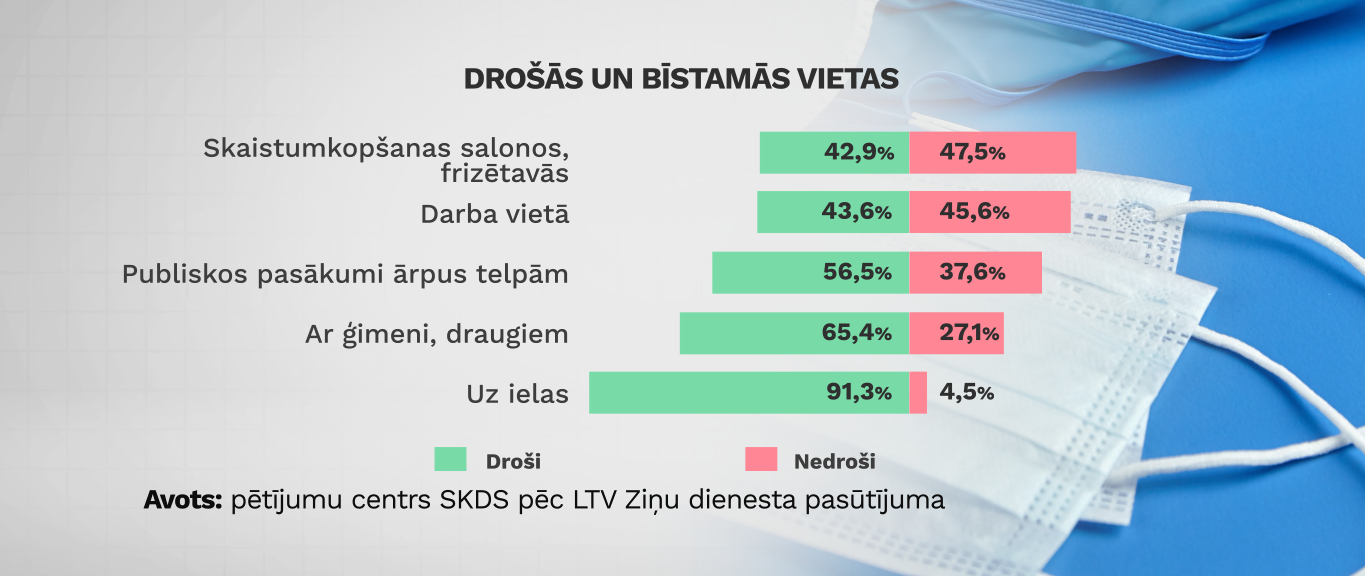
In order to make sure that this impression matches the real situation, the LTV compared the results of this survey with the data collected by the Centre for Disease Prevention and Control (SPKC) on the sites of infection. According to SPKC, more than 40% of the known sources of infection have occurred in households, i.e. at home or in the presence of relatives. The second most frequent site of infection – working with customers or colleagues.
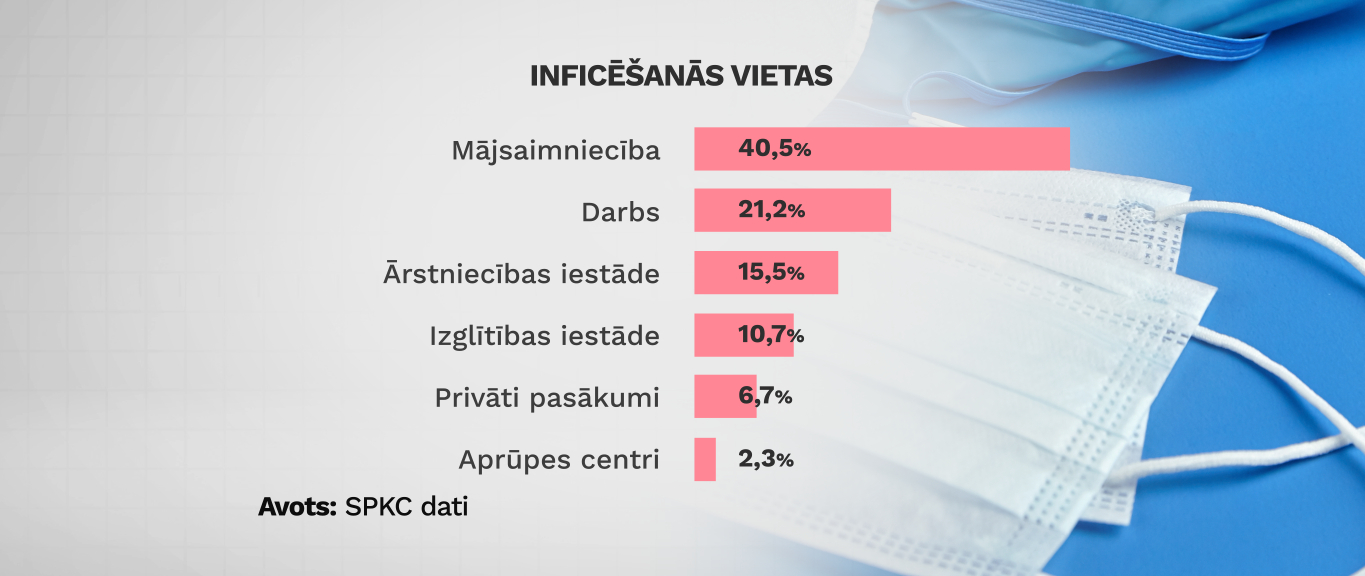
However, it should be noted here that SPKC epidemiologists have only managed to identify the source of the infection in about half of the cases.
However, the fact is indisputable: homes and jobs are not really so safe.
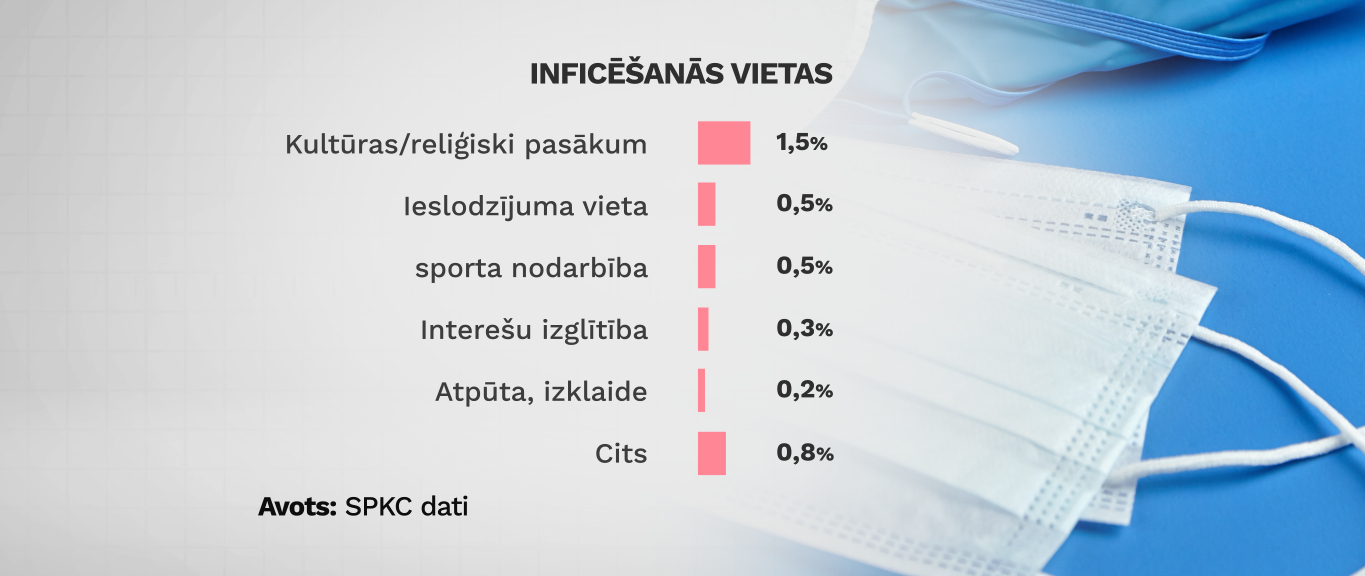
“People think – my house, I feel safe there because there are my people around – my relatives, my friends. And they can't get sick. It's misleading. We don't know if a person is sick or healthy because there are enough cases of asymptomatic forms,” said SPKC Epidemiologist Rita Korotinska.
“First and foremost, it is hand hygiene. When coming home, wash and, if possible, disinfect our hands. More often than usual, air out rooms and clean the house using disinfectants. We need to think not only of ourselves, but also of other people. However, it would be good not to go visit anyone.
If we think about parents or grandparents, then it should be remembered that they are in risk groups. Let's protect one another.”
